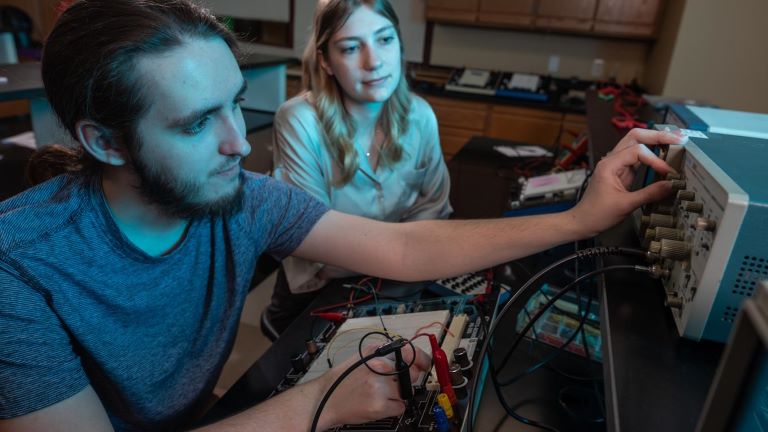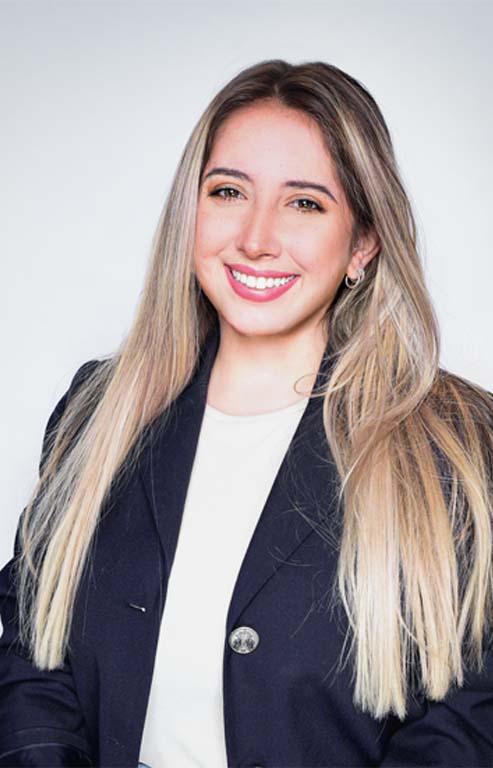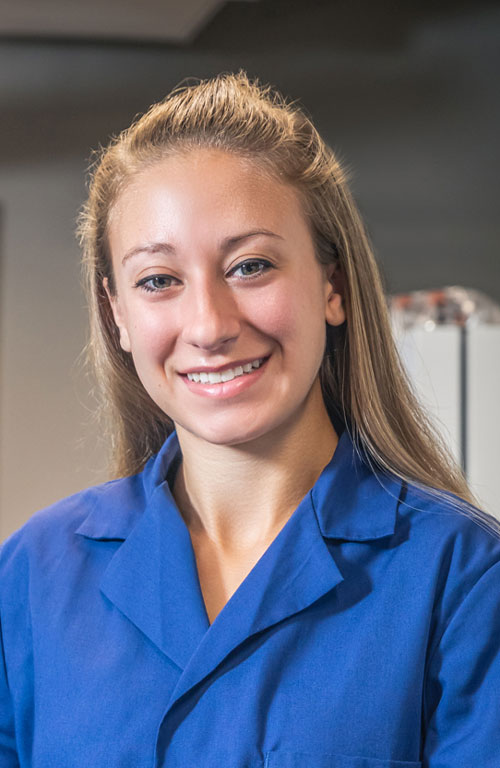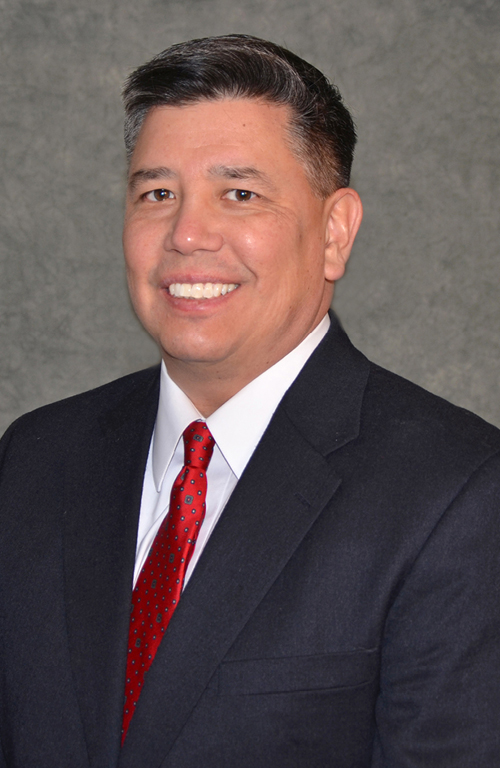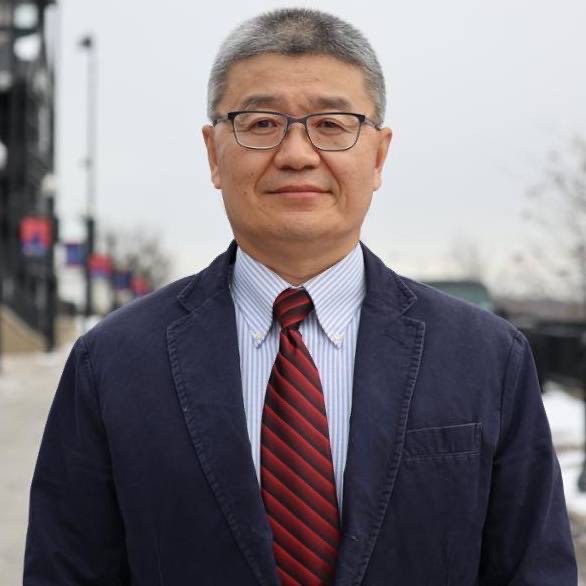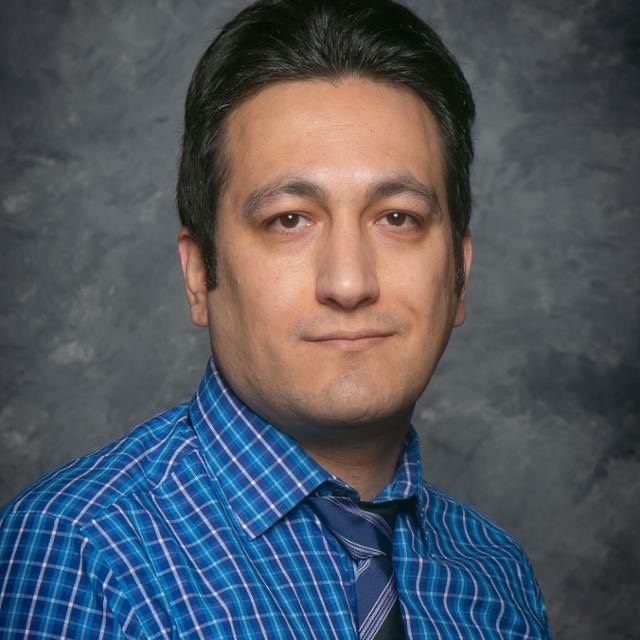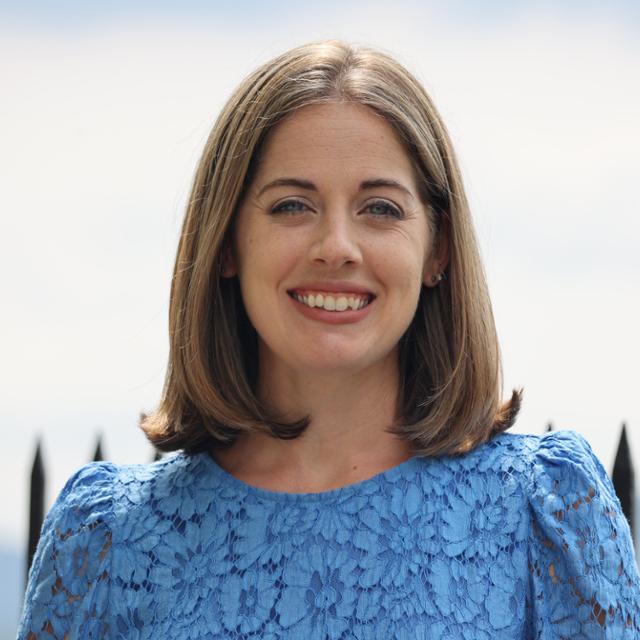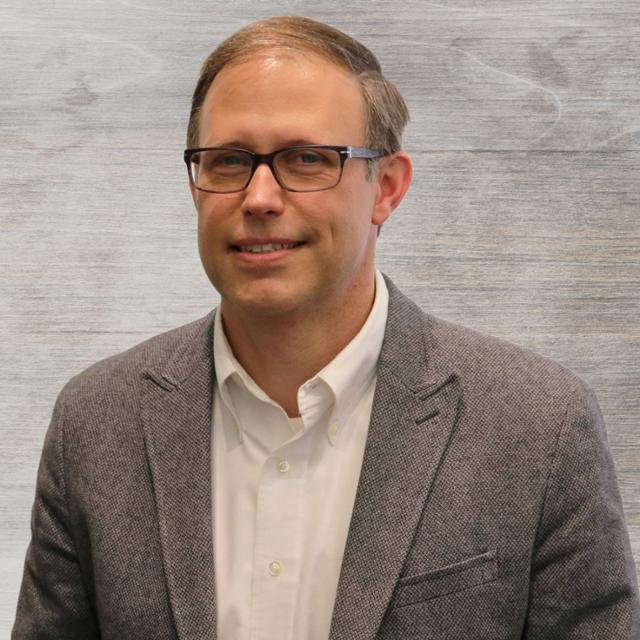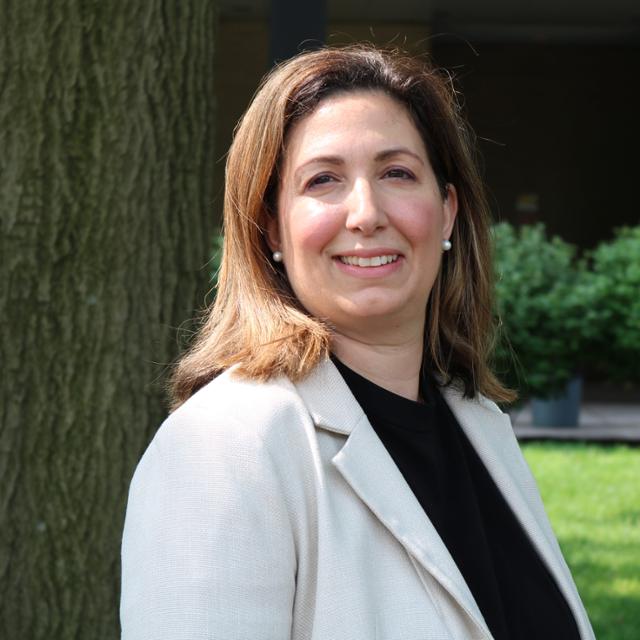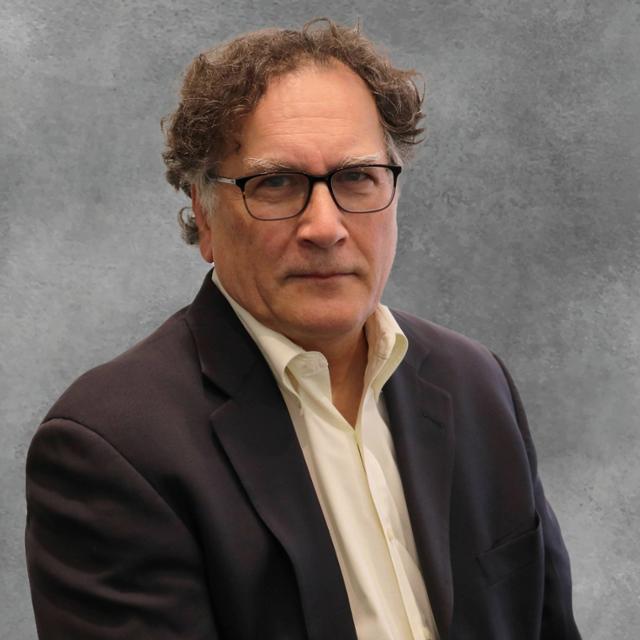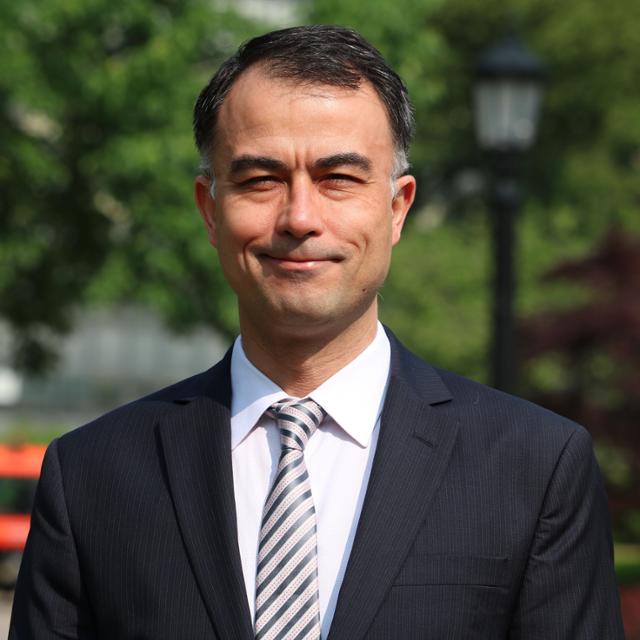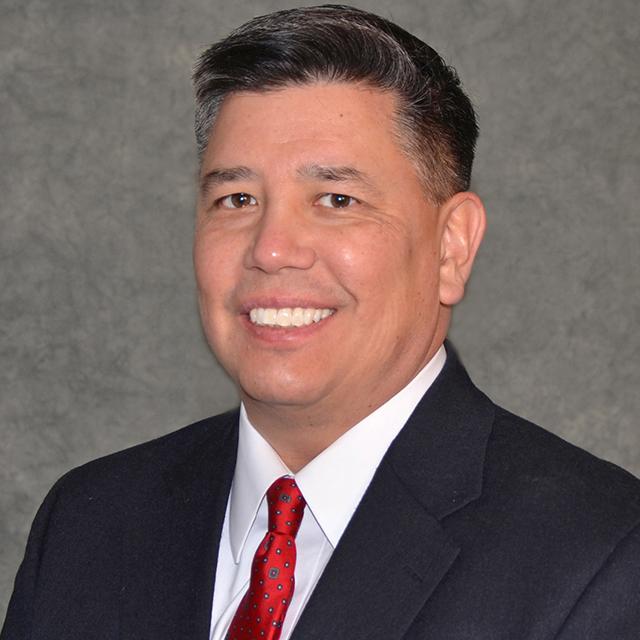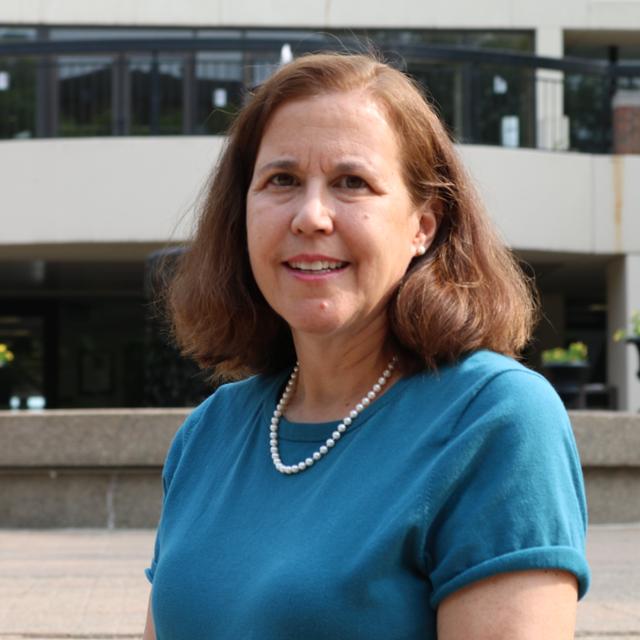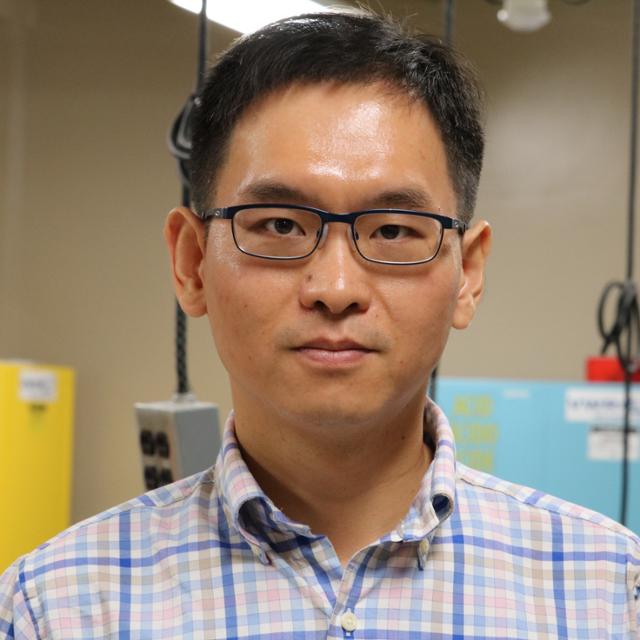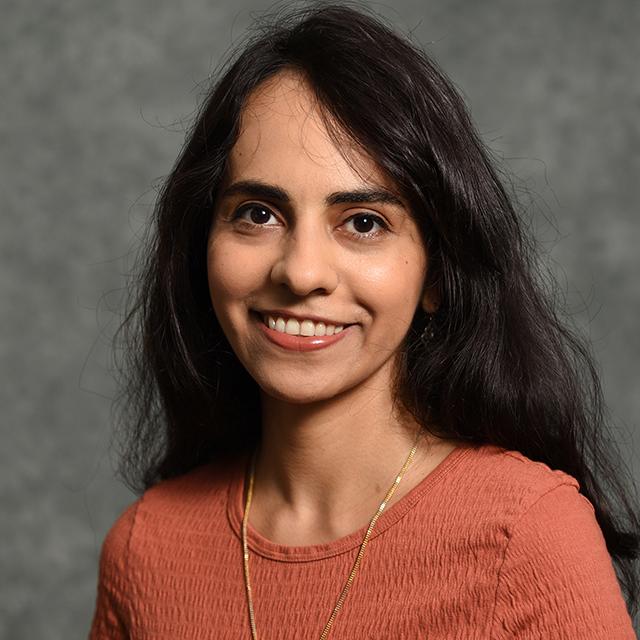Engineering for Innovation and Impact
Earn a well-rounded engineering degree that encompasses mathematics, science, engineering, and the liberal arts, all rooted in the Spiritan principles of serving others. Through a comprehensive, hands-on approach, you will gain the knowledge and skills needed to tackle real-world challenges. Our dedicated faculty foster innovation and ethical practice to ensure your readiness not only for success but also to make a significant impact in the engineering industry.
In your first year of engineering coursework, you will be prepared for a 4-year degree while having the flexibility to explore different engineering fields. Hands-on experiential learning opportunities will broaden your horizons, providing a solid foundation in physics, mathematics, and systems.
You'll receive personalized guidance from faculty members, many of whom are experienced engineers, as well as support from Student Success Coaches who will assist you in discovering the engineering path that best suits your goals. Transitioning to your chosen engineering pathway for the subsequent years to earn your bachelor's degree in Engineering is made seamless.
If you're considering transferring, our Bridges curriculum simplifies the process, allowing you to smoothly transition into our Engineering Programs.
Get started on your engineering path. Contact us today!
Sign up to receive information about our programs and connect with a Student Success Coach!
I Can Help You Reach Your Bigger Goals
I can help you get started on your engineering path. Please contact me if you have questions.
Tiffany Kells
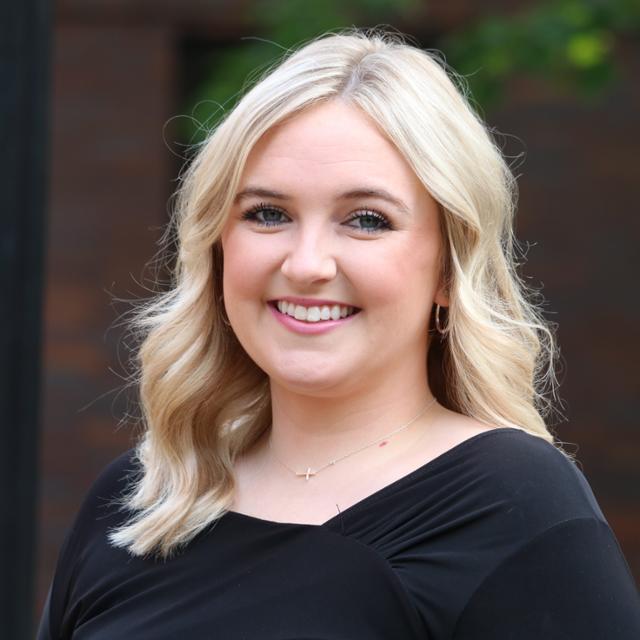
Engineering Year-1 Program Offers:
- Engineering first-year coursework prepares you for a 4-year degree while providing time for you to decide on an engineering field of study.
- Hands-on experiential learning opportunities will expand your horizons to what’s possible while building a firm foundation in physics, math and systems.
- Personalized guidance from faculty, many of whom are engineers themselves, and Student Success Coaches who will walk alongside you to help discover the engineering path that’s right for you.
- Easy transition to your chosen engineering pathway for Years 2+ to earn your bachelors in Engineering degree.
- Ready to Transfer? Our Bridges curriculum makes it easy to transfer into our Early Access Engineering Programs.
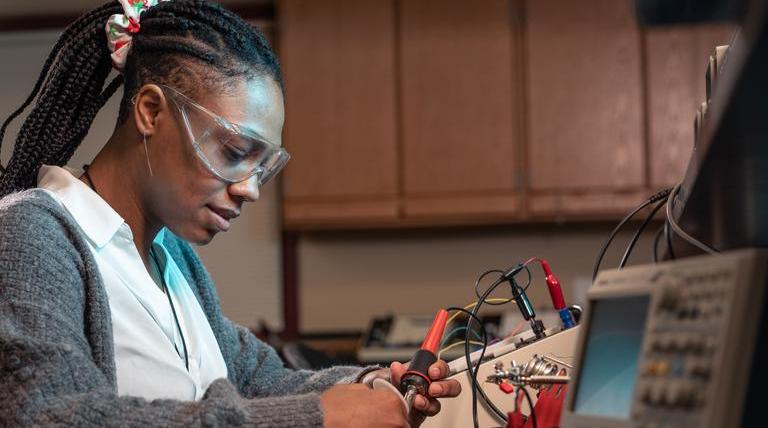
Achieve Your Bigger Goals!
Explore our degrees and programs
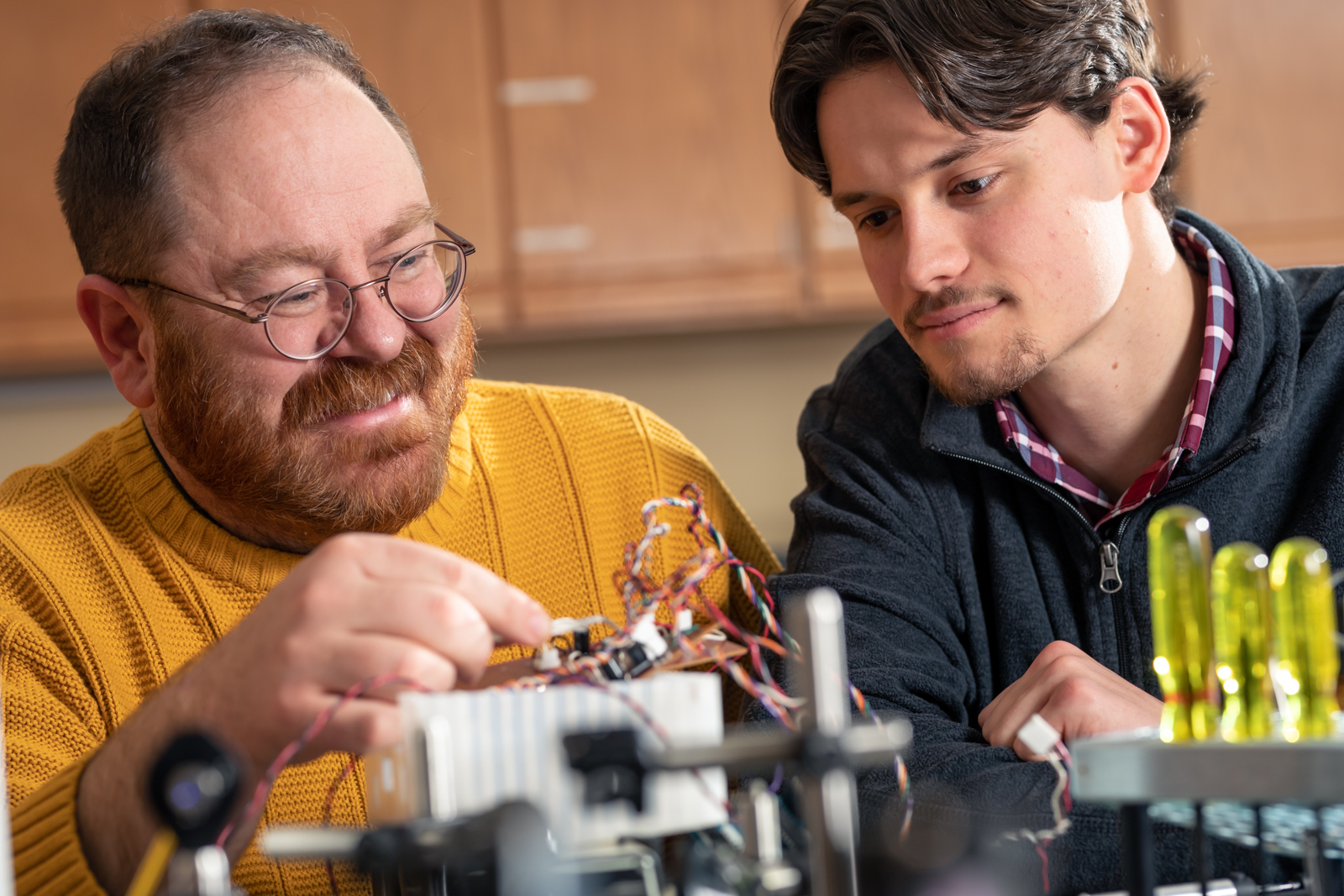
General Engineering
Benefit from a curriculum designed to instill a strong foundation in core engineering principles. Beyond the confines of textbooks and lectures, you will be encouraged to immerse yourself in hands-on research experiences that provide you with the tools to translate theory into practice.
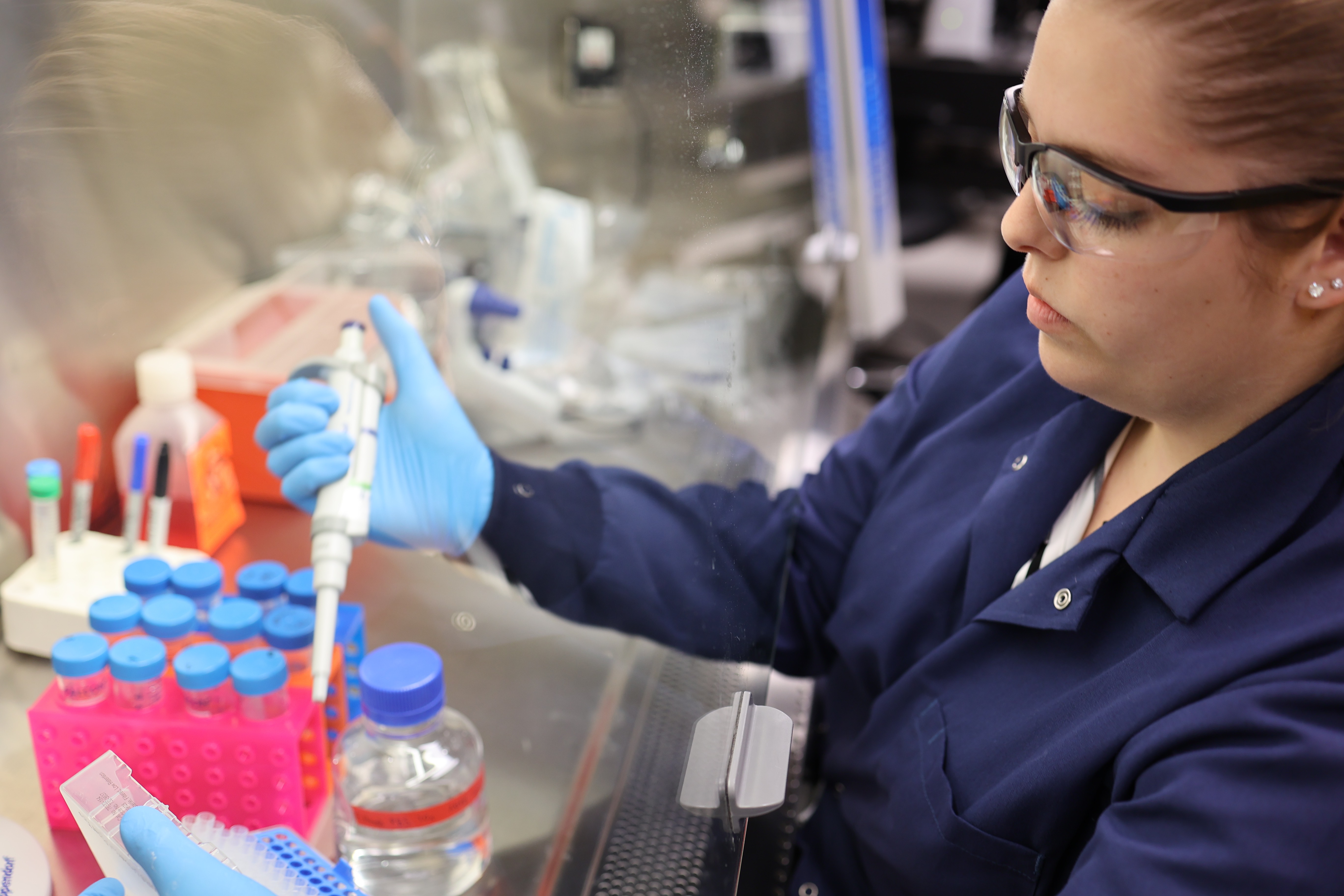
Biomedical Engineering
Embark on an innovative educational journey that merges biology and engineering to propel healthcare technology forward. Here, you'll have access to cutting-edge research opportunities and benefit from expert faculty guidance, empowering you to shape the future of medical science and engineering.

Civil Engineering
The Bachelor of Science in Civil Engineering (BSCE) prepares you for careers in designing, constructing, and maintaining infrastructure, with an Environmental Engineering concentration that teaches solutions for pollution mitigation by integrating civil and chemical engineering principles.
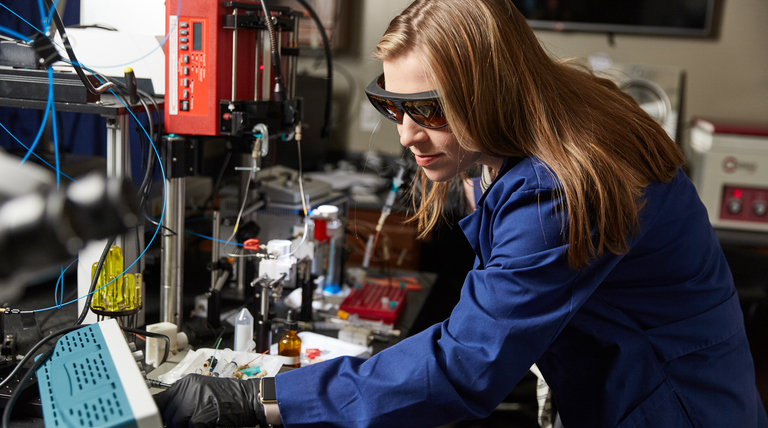
Mechanical Engineering
Create innovative, practical solutions in the field of mechanical engineering. Through hands-on experiences and expert faculty guidance, you'll gain the skills to contribute to advancements in technology.
The School of Science and Engineering is a vibrant hub for discoveries that benefit
society. With eight departments, numerous research centers, abundant undergraduate
research opportunities, and a rapidly growing funded-research budget, we are at the
forefront of scientific advancement. Our strong partnerships in Pittsburgh and around
the world further enhance our collaborative initiatives, driving innovation and impact. Each summer, students from Duquesne and universities nationwide participate in the
Undergraduate Research Program (URP), a 10-week experience dedicated to scientific
exploration. Participants conduct research in fields such as chemistry, biology, pain
research, and neurodegeneration while engaging in ethics education and community outreach.
The program provides opportunities to collaborate with faculty, industry professionals,
and fellow researchers, culminating in an on-campus research symposium where students
present their findings.Return on academic investment
Featured content
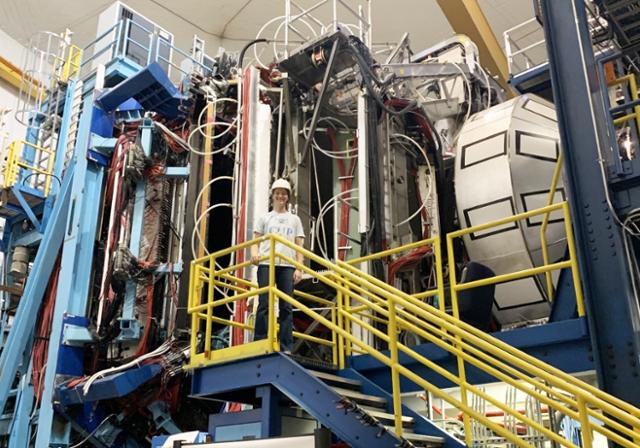
Driving Innovation and Discovery in Science and Engineering
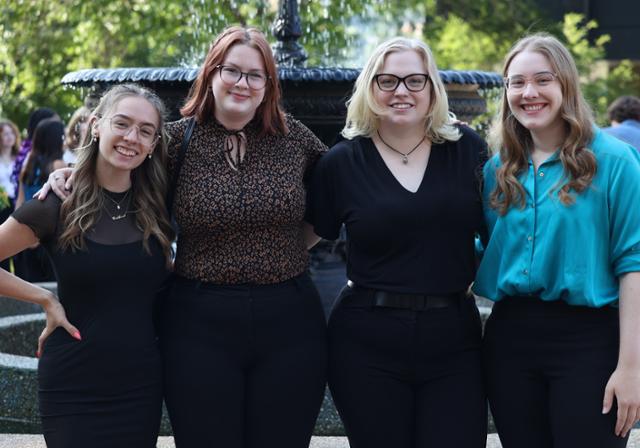
Duquesne’s Summer Undergraduate Research Program
Hear from our students and faculty
Engineering Faculty



